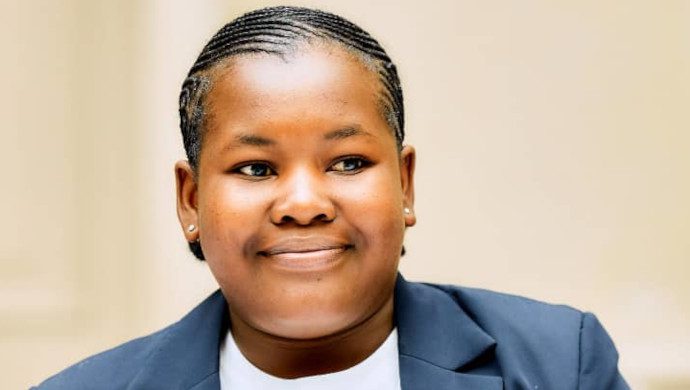The International Labour Organization (ILO) has elected Guy Ryder as its tenth Director-General. Ryder, who is currently the ILO’s Executive Director for International Labour Standards and Fundamental Principles and Rights at Work, was elected by secret ballot by the ILO’s Governing Body.
The 56-year old Briton will begin his five-year term in October 2012, taking over from Juan Somavia (71) from Chile. He has been DG since March 1999 – being the first from the southern hemisphere.
The election was scheduled by the ILO Governing Body following the announcement by the current Director-General that he was advancing the date of his departure to the end of September 2012, eighteen months before the end of his third mandate (han blev genvalgt i 2003 og 2008).
Governing Body eller ILOs styrelsesråd har Danmark som nordisk medlem i perioden 2011-14. Danske LO gør gældende i en kommen-tar, at det er første gang en repræsentant fra arbejdstagersiden (lønmodtagerne) kommer til at indtage chefstolen i ILO, som beskæftiger sig med internationale arbejdsforhold.
The run-up was close: Guy Ryder received 30 of the 56 votes of the titular members of the ILO’s Governing Body. There were eight other candidates for the position. The vote was conducted at the UN Organization`s headquarters in Geneva, Switzerland.
“I am really excited about this chance: this is a tremendous opportu-nity, in the middle of this global crisis, to make a difference to the lives of millions of people, including those who never heard of the ILO, to change their lives for the better”, said the Director-General elect.
“The significance of what happened here today will be judged by what we do, and that is to put the people and the world of work at the heart of everything we do”, noted he.
Mr Luc Cortebeeck, Worker Vice-Chairperson of the Governing Body, said:
“As workers, we are delighted. Mr Guy Ryder knows the ILO, and has been working at the ILO. He also knows the world of work, but he is somebody who will work with the governments, with the employers as well as with the workers. He will always defend tripartism and social dialogue.”
“Mr Ryder is an excellent professional with a lot of experience in the house. I think the nine candidates were outstanding personalities,” said Mr Daniel Funes de Rioja, Employer Vice-chairperson of the Governing body. “We respect him, he knows the house and we expect we can work together. We need strong reforms because of the situation the world is facing”, he added.
Guy Ryder’s biography
Guy Ryder has some thirty years of experience in the world of work, most of it at the international level.
Born in Liverpool (UK) in 1956, he was educated at the Universities of Cambridge and Liverpool.
Mr Ryder started his career at the international department of the Trade Union Congress in London.
In 1985, he moved to Geneva as Secretary of the Industry Trade Section of the International Federation of Commercial, Clerical, Professional and Technical Employees (FIET).
In 1988, Mr Ryder became Assistant Director and – from 1993 – Director of the Geneva Office of the International Confederation of Free Trade Unions.
In 1998, he joined the International Labour Office (ILO) as Director of the Bureau for Workers’ Activities, until 1999 when he became Director of the Office of the ILO Director-General.
In February 2002, Guy Ryder left for Brussels first as General Secretary of the International Confederation of Free Trade Unions (ICFTU) and – from November 2006 – as General Secretary of the International Trade Union Confederation (ITUC).
In September 2010, Mr Ryder came back to the ILO as Executive Director responsible for International Labour Standards and Fundamental Principles and Rights at Work, overseeing key work in the supervision of the application of ILO Conventions and Recommendations.
He led several high level missions to address a range of standards-related questions in countries such as Bahrain, Colombia, Fiji, Georgia, Greece, Burma and Swaziland.
Mr Ryder was also responsible for the Office’s work to successfully complete the reform of the ILO Governing Body which came into effect in November 2011.
The Governing Body is the executive body of the International Labour Organization (the International Labour Office being the secretariat of the Organization).
It meets three times a year, in March, June and November and takes decisions on ILO policy, the agenda of the International Labour Conference and the draft Programme and Budget of the Organization for submission to the Conference.
It is composed of 56 titular members (28 Governments, 14 Employers and 14 Workers who vote) and 66 deputy members (28 Governments, 19 Employers and 19 Workers).
Ten of the titular government seats are permanently held by States of chief industrial importance (Brazil, China, France, Germany, India, Italy, Japan, the Russian Federation, the United Kingdom and the United States). The other Government members are elected by the Conference every three years.
The ILO was founded in 1919, in the wake of a destructive war, to pursue a vision based on the premise that universal, lasting peace can be established only if it is based on social justice. The ILO became the first specialized agency of the UN in 1946.
Kilde: www.ilo.org













